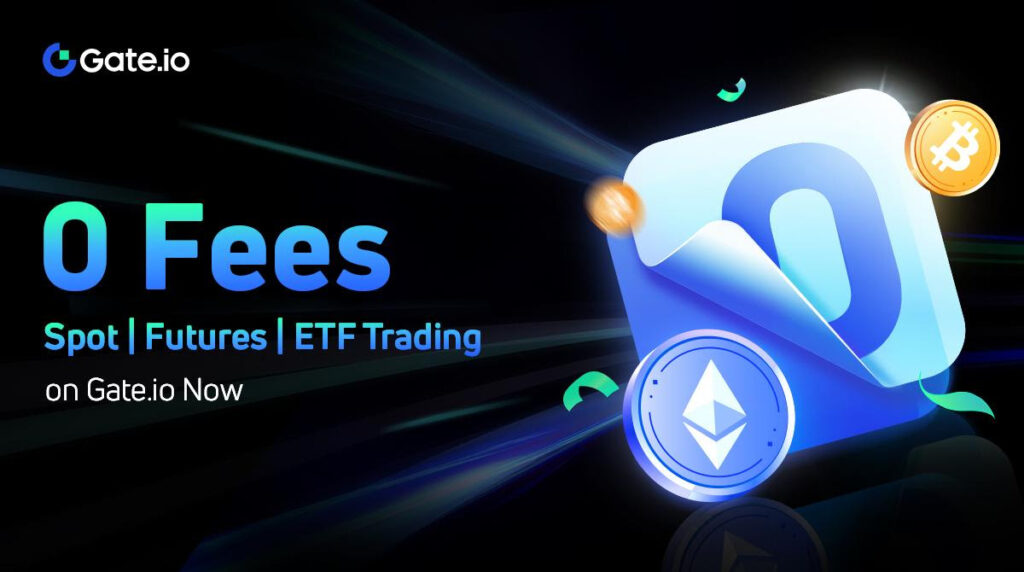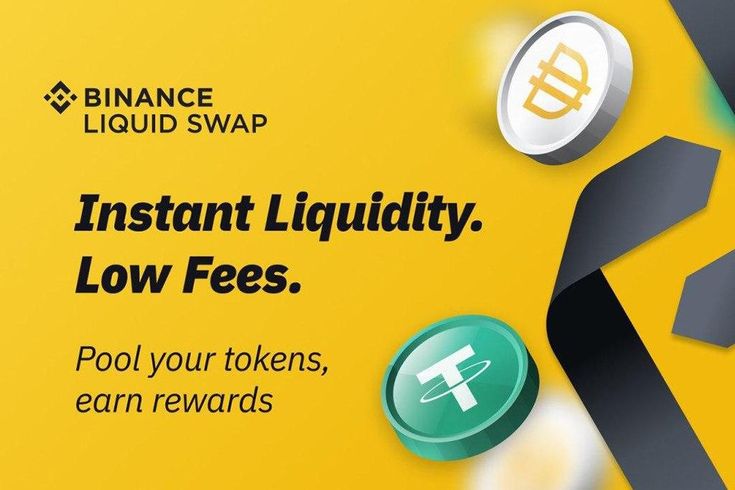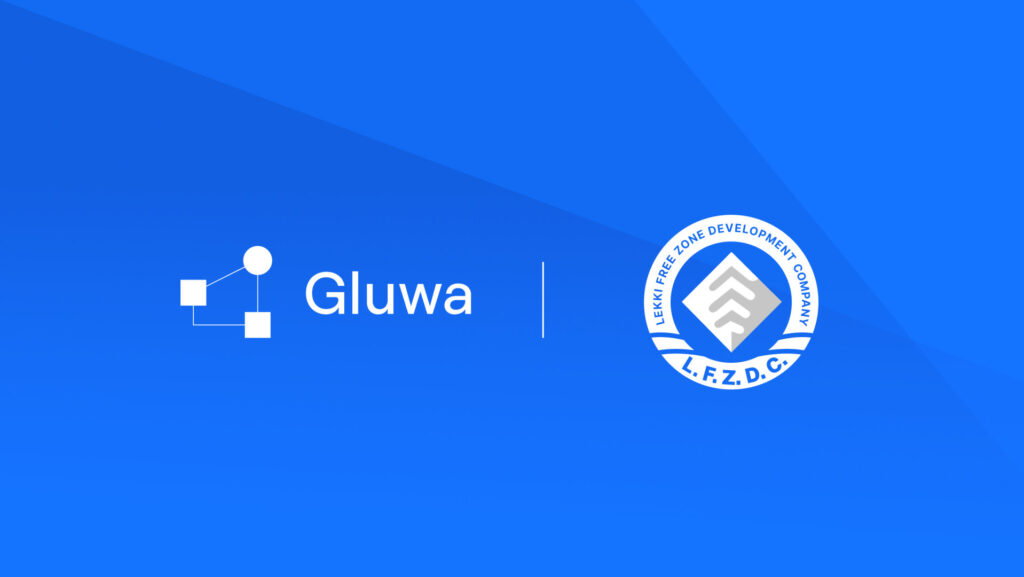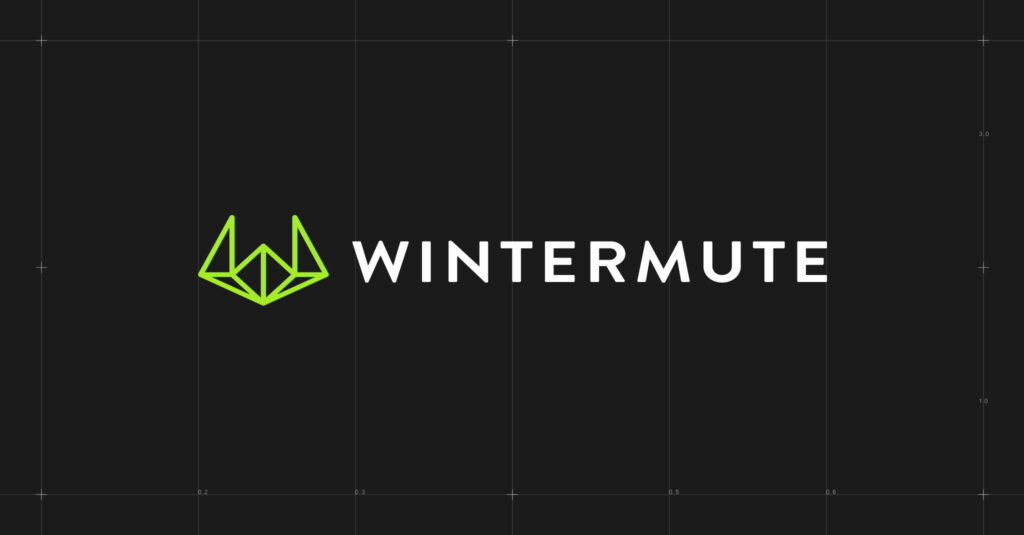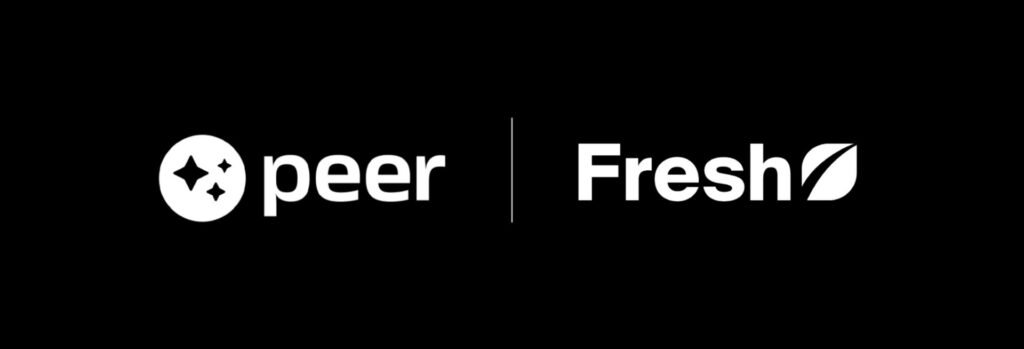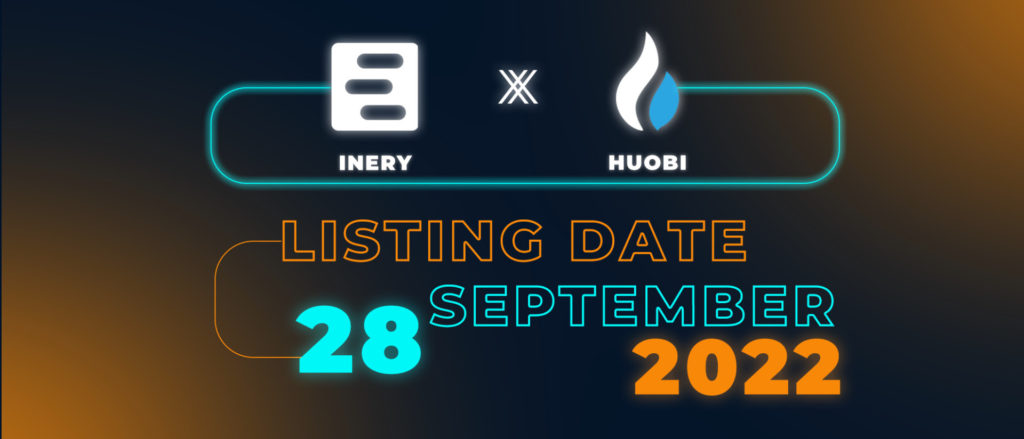A hotly contested disqualification fight at the 11th U.S. Circuit Court of Appeals should provide a good indication of just how much damage the crypto law firm Roche Freedman is facing after last month’s revelation of surreptitious video recordings of name partner Kyle Roche.
The anonymous website Crypto Leaks published video clips of Roche, a well-known crypto litigator, last month. Roche appears to boast of a lucrative financial stake in blockchain company Ava Labs Inc and to suggest that he filed class actions against Ava competitors to benefit the blockchain company. Roche also seems in the video clips to disparage class action plaintiffs as “100,000 idiots out there” and to criticize jurors as “idiots.”
Roche, who did not respond to a query, has denied any improper litigation conduct, asserting in an Aug. 29 Medium post that the videos were illegally recorded by an operative working for a defendant in a class action filed by Roche Freedman. Roche also said that the clips were selectively edited, that he was intoxicated when the recordings were made and that Ava had no say in Roche Freedman’s crypto class actions.
The firm itself has acknowledged that Roche’s comments about class members and jurors were “inappropriate,” though it has also echoed Roche’s assertion that he was illicitly taped in a “set-up orchestrated by a defendant.” The firm contends that Roche’s boasts about using class action litigation to further Ava’s interests were “plainly false,” describing Roche’s statements as a misguided attempt to impress the purported venture capitalist he believed he was meeting with.
Roche Freedman nevertheless removed Roche from its class action practice, including ongoing cases against stablecoin creator Tether Ltd and crypto exchange Bitfinex, citing the “regrettable distraction” the videotapes have prompted.
That action has not appeased some critics. Roche Freedman is facing calls for disqualification in the Tether case not just from defendants but also from its own co-counsel at Selendy Gay Elsberg and Schneider Wallace Cottrell Konecky. U.S. District Judge Katherine Polk Failla of Manhattan has scheduled an Oct. 3 hearing on the disqualification requests, which contend, among other things, that Roche Freedman’s continued involvement in the class actions will bog down the litigation in discovery about Roche’s conduct.
But in the meantime, Roche Freedman is also fending off a disqualification motion at the 11th Circuit by Craig Wright, the self-proclaimed Bitcoin inventor who was hit earlier this year with a $143 million judgment in a case that Roche Freedman litigated on behalf of the estate of Wright’s onetime business partner David Kleiman. I’d argue that the outcome of the 11th Circuit disqualification will tell us even more than the Tether case about the extent of damage to the firm from the Roche tapes.
Roche Freeman’s client, which sought hundreds of billions of dollars from Wright, initiated the 11th Circuit appeal, despite obtaining a $143 million judgment from the trial court. Roche Freedman and co-counsel from Boies Schiller Flexner argued in their opening brief that the trial judge committed several critical errors before and during the 2021 trial against Wright, which ended with a $100 million jury verdict on one of the estate’s claims, but a defense verdict on a dozen other demands. Wright has not cross-appealed the judgment.
The timeline is significant. Roche and Freedman began representing the Kleiman estate back in 2018, before they even left Boies Schiller to found their own firm. Ava Labs did not exist when they first filed the estate’s suit against Wright. And according to Roche Freedman, the two name partners were nearly two years into the estate’s case against Wright before they were engaged to do any legal work for Ava.
So what does the Wright case have to do with Roche’s videotaped comments about his relationship with Ava?
There’s just one direct link, according to the Sept. 6 disqualification motion filed by Wright lead lawyer Andrés Rivero of Rivero Mestre. Roche allegedly referred to Wright in one of the video clips at Crypto Leaks as a “nemesis” of Ava’s founder, suggesting a motive to push hard against Wright. The disqualification motion also theorized that Roche’s boasting about his own wealth suggests that he does not feel constrained to put his clients’ interests ahead of his own. In this case, Wright’s motion argued, Roche Freedman blew up a potential settlement that would have benefited the estate.
But mostly, the brief is an opportunity for Wright and Rivero to highlight Roche’s unsavory comments, including his assertion that jurors and class members are “idiots.” The filing, in effect, invites the 11th Circuit to join in Wright’s disapprobation.
“[Roche’s] admissions of wrongdoing demonstrate the firm’s unlawful ‘business plan’ and its ongoing efforts to subvert the fair administration of justice, which heap scorn and disrepute upon the legal profession and every court (including this one) in which the firm has appeared,” Rivero argued.
Roche Freedman’s Sept. 19 response emphasized that the Wright litigation was well under way before Ava existed and was tried to a verdict months before Roche was videotaped.
“Wright’s suggestion that this action was brought for an improper purpose defies logic,” Roche Freedman said. “To state the obvious, this action was brought because plaintiffs — who have never met anyone from and have no affiliation with Ava Labs — believed in good faith that Wright converted their valuable bitcoin and blockchain-related intellectual property.”
Freedman elaborated via an email response to the query I sent to him and Roche. “Wright’s motion is frivolous,” he said. “While we understand he has a personal animus against the firm, we’d have hoped that wouldn’t be reflected in his filings. Unfortunately, we were wrong.”
Wright counsel Rivero retorted: “Their response doesn’t even start to address their confessed misconduct.”
Freedman said he does not expect other Roche Freedman adversaries to follow Wright’s lead. I’ve been writing about litigation for long enough to predict that if the 11th Circuit grants Wright’s motion, despite the relatively tenuous connection between Roche’s taped comments and his firm’s litigation against Wright, we can expect Roche Freedman opponents to pile on with their own disqualification motions.
The 11th Circuit motion is basically a test of whether judges can stomach Roche’s conduct. If they can’t, Roche Freedman could be in big trouble.
Follow Crypto Intelligence on Google News to never miss a story
Majuro, Marshall Islands, 21st September, 2022, Chainwire
What’s better than low fees? No fees. Gate.io is excited to announce ZERO trading fees on most spot and contract market trading pairs. The no-fee structure was launched in two phases, first on September 16 (UTC) and then on September 20 (UTC), for spot and other markets, respectively.
After a breakthrough year for the exchange, this radical change in fees is an ambitious move to give back to the crypto community. The removal of fees on this scale is unmatched by any other mainstream exchange, making Gate.io the industry’s most affordable platform for crypto trading.
Zero-fee breakdown
As a gesture of goodwill to millions of users worldwide, maker and taker fees on all spot market USD, BTC, and ETH quote currency trading pairs and BTC/USDT have been completely removed as of September 16 (UTC). As of September 20 at 10:00 (UTC), there will be no fees on all spot ETF pairs, USD-M and BTC-M perpetual futures pairs, USDT-M and BTC-M delivery futures pairs.
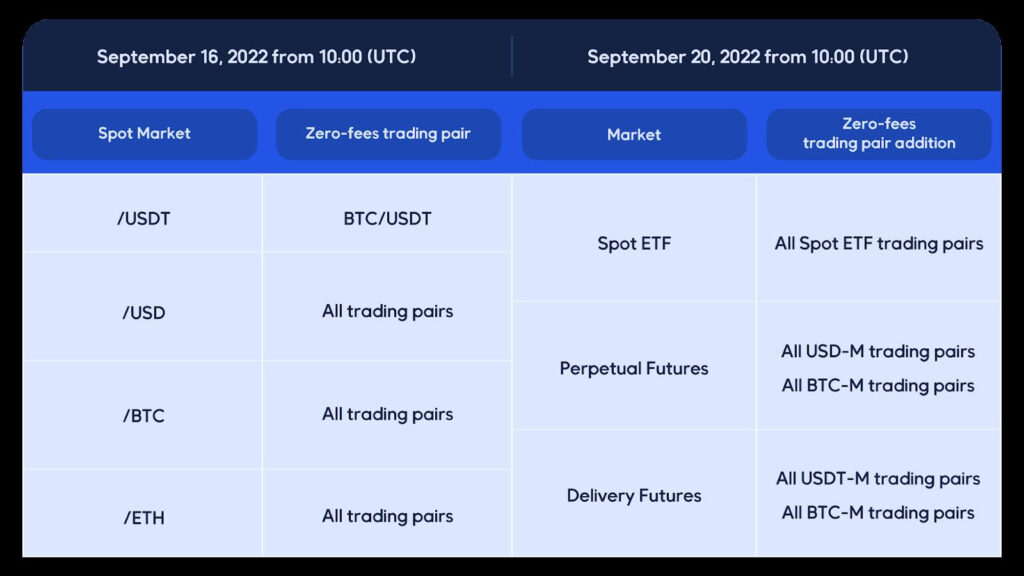
USD-pegged stablecoins such as USDC, TUSD, PAX, BUSD, and HUSD are denominated in USD and can be traded as USD spot pairs without the need for conversion and with no fees. With USD-pegged stables being the most commonly traded stablecoins on the market, having no fees helps make trading much cheaper. These reduced fees will remain in place indefinitely until further notice.
United with the crypto community
The crypto market has been pretty sluggish so far this year, so Gate.io is lending a hand to users so they can weather the storm together.
Though recently, Ethereum’s Merge has managed to spark the interest of its supporters and the entire crypto community. The ability to trade ETH at no cost will support the Ethereum community and, as an extension, its thriving ecosystem. And regardless of the ongoing bear market, Bitcoin still stands as the most traded digital asset by a wide margin. Making BTC a no-fee asset helps ease the trading experience for millions of users.
Fewer fees. Fewer worries.
Gate.io makes trading a secure, easy, and low-cost experience so traders can better focus on their positions and strategies and worry less about the rest.
Eliminating trading fees is another user experience enhancement following Gate.io’s 9th anniversary, which also included refreshed branding, lower and more flexible fees platform-wide, trading competitions with multi-million dollar max prize pools, and much more.
On Gate.io, user asset security is always priority number one. It was the first exchange to provide verifiable user asset reserves audit by a certified firm and is currently in the process of another audit. Meaning all user assets on the exchange are genuinely held and available for withdrawal at any time.
With nearly a decade of refinement, fine-tuning, and industry experience, Gate.io provides a comprehensive and safe trading experience trusted by millions of crypto users worldwide. Users can trade over 1,500 cryptocurrencies on over 2,500 trading pairs in the spot and futures market and access lending, contracts, options, NFTs, Web3, copy trading, exclusive fee discounts and bonus rewards.
About Gate.io
Established in 2013, Gate.io is one of the pioneers in the crypto industry. It has established a comprehensive ecosystem, which includes a cryptocurrency exchange, public blockchain, decentralized finance, research and analysis, venture capital investing, wallet services, startup incubator labs, and more.
Gate.io offers services related to trading multiple leading digital assets, and it has grown to serve over 10 million users worldwide. It has been consistently ranked as one of the top 10 cryptocurrency exchanges based on liquidity and trading volume on CoinGecko and has received a rating of 4.5 by Forbes Advisor, making it one of the Best Crypto Exchanges for 2021.
Contacts
Head of PR & Communication
- Dion Guillaume
- Gate.io
- dion@gate.io
San Francisco, California, 21st September, 2022, Chainwire
As part of a drive to strengthen its contribution to the Nigerian economy, the Lekki Free Zone Development Company (LFZ) is in talks with Gluwa, a blockchain technology company. The pair are looking to partner and use blockchain to foster trade collaboration, growth, and sustainability among new and existing Free Zone enterprises. The partnership would also explore the creation of a Virtual Free Zone within the Lekki Free Zone.
Lekki Free Zone’s Head of Strategy, Innovation & Special Projects, Mr. Tomiwa Idowu, has disclosed that discussions are ongoing between LZF, the Nigerian Export Processing Zones Authority, and the Gluwa team.
In a statement, Idowu explained that the partnership, when finalized, will create a dashboard for the tokenization of goods into NFTs (non-fungible tokens) and provide digital asset-backed loans for new and existing enterprises who are looking to fund operations and/or expand their businesses, similar to the integration of OpenSea and Compound.
Idowu shared his vision for innovating the trading and industrial sector in Nigeria and Africa as a whole, bringing it into the modern information age with the Lekki Free Zone at the epicenter.
“I am extremely excited by the enormous potential of such a partnership, which would further establish Lagos State as Africa’s leading sub-national in terms of innovation, economic development and revenue generation,” said Idowu.
He commended the Lagos State Governor, Babajide Sanwo-Olu, as a beacon of progress and hope for the nation in general, saying: “Our Governor has always been a firm believer in fast-paced development, which involves using technology to leapfrog bureaucracy and going straight to solving immediate problems.”
Chief Executive Officer at Gluwa, Tae Oh, noted that the firm is keen to partner with the Lekki Free Zone as it is the largest and most developed Free Zone in Nigeria with proximity to the deep-sea port as well as the Dangote refinery, saying: “Trading has been the bedrock of the Nigerian economy, with annual volumes running into billions of dollars.”
He added: “We believe the digitization of the sector can allow us to harness its full potential. For instance, a standard process to digitize goods manufactured or processed within the zone in tandem with a market system on web3 will allow manufacturers to trade globally via the blockchain.
“All trades will be registered and benefit from the incentives of the Lekki Free Zone, such as zero taxation and free circulation of goods. As soon as the goods get settled for export by the in-Zone Customs Processing Center, they will get shipped out straight from the Lekki Free Zone via the deep-sea port.
“This will reduce delays, eliminate human errors, exponentially drive up Nigeria’s non-oil exports and sustain a positive trade balance for the nation. While we are still working out the fine details and a specific framework with NEPZA, we believe it is the future of commerce and trade in Africa.”
About Gluwa
Gluwa is an Open Finance platform, connecting capital from developed markets to emerging market lending opportunities using blockchain technology. By providing the decentralized infrastructure rails to raise and disburse capital anywhere in the world, investors can use the Gluwa Invest platform to partake in debt-financing deals with emerging market fintech lenders, earning up to 15% APY.
Contacts
VP of Business
- Aston Lee
- Gluwa
- support@gluwa.com
San Francisco, United States / California, 20th September, 2022, Chainwire
Vehicle theft is a common concern in Europe and Roole, a French automobile club, announced today their partnership with Nodle to help car owners trace and recover their cars. Nodle is a decentralized network of smartphones that work together to locate and connect smart objects, such as Bluetooth tags embedded within vehicles. Nodle users are rewarded with the NODL cryptocurrency in exchange for helping grow the mobile network and locating stolen vehicles.
Off-the-shelf Bluetooth tags are placed on the vehicle, and when an owner reports a vehicle is stolen, the Nodle Network searches for the tag in question. When a vehicle is discovered, the detection is securely routed to Roole.
The entire process, from contributing to the Nodle network to locating vehicles, is based on privacy-first principles where no direct personal data, such as first or last names, are collected.
“We are excited to pilot the Nodle network with our fleet,” says Thomas Fournier, CEO of Roole. “Multiple, low-cost smart sensors prevent stolen vehicle disassembly, a common practice in Europe where stolen vehicles are sold for parts,” says Fournier. “If a car is stolen from France, for example, and ends up in another country, there’s a good chance we’ll find it, thanks to our partnership with the Nodle Network”
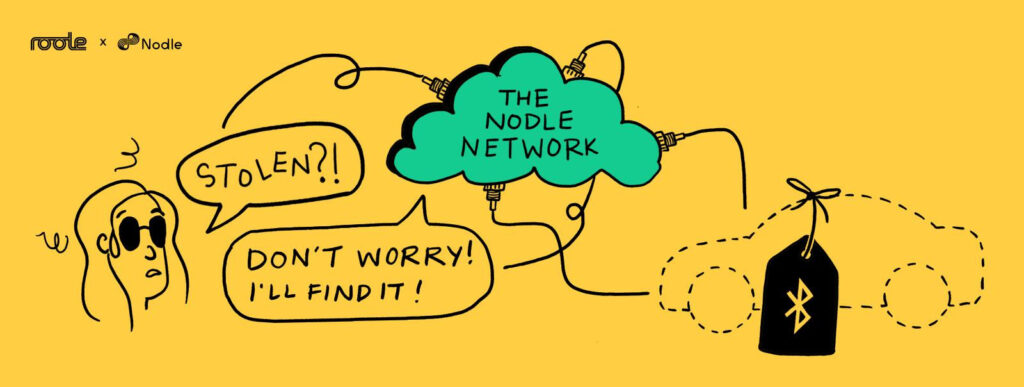
“Roole represents the first step in moving enterprise asset tracking towards a more secure and private model leveraging a decentralized architecture,” says Micha Benoliel, Nodle Founder and CEO. “On-chain services such as Roole provide a powerful, real-life use case for the Nodle network and drive value that anyone with a smartphone can benefit from in the form of Nodle’s native token, NODL.”
Using the Nodle Network’s on-chain API to locate vehicles, Roole works anywhere Nodle exists. This means that if a vehicle ends up in another country, the vehicle can still be located. There are no complex roaming agreements, expensive cellular modules, or GPS. With Bluetooth already running on billions of smartphones, Nodle just works.
“Roole represents a compelling real-world use case for on-chain smart asset tracking,” says Garrett Kinsman, a Nodle Co-founder. “It represents a shift where non-blockchain or Web2 companies are using decentralized technologies to create new experiences for their customers.”
In the automotive industry, the Nodle Network has many other potential applications. For instance, ridesharing services want to ensure that drivers are using the vehicle declared on their platform and doing their rides instead of sharing it with somebody else. The Nodle Network can be used to prove that the rider is in the right vehicle, driven by the right driver. Cryptographic proof would be issued without the need for personal data to be shared, tying the vehicle to the driver and the rider.
In the future, vehicles could even natively support Nodle, allowing anti-theft security to be built into vehicle hardware. In this forthcoming solution, Nodle-enabled vehicles would be extremely difficult to steal, deterring thieves.
To learn more about Roole you can visit www.roole.fr. To earn cryptocurrency by helping locate Roole vehicles, and other smartphone devices, download nodle.com/cash.
About Nodle
Nodle connects the physical world to Web3 by using smartphones as edge nodes. The edge nodes read devices and sensors in the physical world using Bluetooth Low Energy (BLE) and connect that information to the blockchain. Creating a geolocation-based layer one that can be used by many unique applications built for the hyper-connected, mobile-oriented world we live in, including real-time asset tracking. Nodle creates an economic model that is secure, private, and scalable. Anyone with a smartphone can join the network in return for Nodle Cash tokens ($NODL). Nodle provides insights for consumer electronics manufacturers, enterprises, smart cities, the finance industry and beyond. Since its creation in 2017, Nodle has become one of the world’s largest wireless networks by number of base stations. To join, download the Nodle app for iOS or Android.
Twitter | Telegram | Discord | YouTube | Medium | GitHub | Website
Contacts
- Carolina Mello
- carolina@nodle.com
Indonesia’s trade ministry plans to issue a new rule governing crypto asset exchanges, requiring two-thirds of the board of directors and commissioners to be Indonesian citizens and reside in the country, a deputy minister said Tuesday.
The measure comes following financial issues faced by Southeast Asia-focused cryptocurrency exchange Zipmex, which temporarily prevented users from withdrawing funds.
“We don’t want to give permits (to exchanges) carelessly, so only for those that meet the requirements and are credible,” deputy trade minister Jerry Sambuaga told reporters after a parliamentary hearing.
The ministry’s Commodity Futures Trading Regulatory Agency (Bappebti) will issue the new rule soon, he said, without giving a timeframe.
It will also require an exchange to use a third-party to store client funds and to prohibit exchanges re-investing stored crypto assets, according to a document issued by the ministry.
Bappebti acting head Didid Noordiatmoko told the parliamentary hearing that ensuring two-thirds of the board were Indonesians based in the country “could prevent the top management running away when a problem hits the exchange.”
Asked about a plan to launch an Indonesian crypto asset bourse, which has been delayed from last year, Sambuaga said the plan could hopefully be completed this year.
Cryptocurrency has gained popularity in Southeast Asia’s biggest economy with a total transaction volume of crypto assets up more than 1,000% in 2021 at 859.4 trillion rupiah ($57.37 billion), according to Bappebti’s data.
Follow Crypto Intelligence on Google News to never miss a story
Hackers have stolen digital assets worth around $160 million from crypto trading firm Wintermute, its CEO tweeted on Tuesday, the latest heist to hit a sector long plagued by cybercrime.
The theft targeted London-based Wintermute’s decentralised finance operations, Evgeny Gaevoy said in a tweet. The firm, which provides liquidity across major crypto exchanges and trading platforms, remains solvent after the hack, he added.
Decentralised finance platforms and software, which aim to provide crypto-based financial services without traditional gatekeepers such as banks, have been targeted by numerous heists in recent years. The sector is little-regulated and victims of crime rarely have recourse.
Gaevoy and Wintermute did not immediately respond to requests for comment.
Wintermute calls itself “one of the largest players” in global crypto markets. It says it manages “hundreds of millions” in assets and trades more than $5 billion a day.
Gaevoy said on Twitter “there will be a disruption in our services today and potentially for next few days,” adding that some 90 assets were hacked.
“If you are a lender to Wintermute, again, we are solvent, but if you feel safer to recall the loan, we can absolutely do that,” Gaevoy said.
Follow Crypto Intelligence on Google News to never miss a story
Sheridan, United States, 20th September, 2022, Chainwire
Coinshift, the leading treasury management and infrastructure platform that enables DAOs and web3 businesses to manage treasury operations securely and efficiently, is pleased to announce its native integration of Superfluid Protocol (“Superfluid”) within its V2 Dashboard is now live. Coinshift’s native integration of Superfluid allows users to create, view, manage & edit real-time money streams directly from the Coinshift dashboard, enabling them to put web3 payroll on autopilot.
As programmable and automatable second-by-second token flows, salary streams help treasury managers save hours in administrative labor and reduce complexity.
“We are thrilled to partner with Superfluid – a pioneer in real-time finance and the leading asset streaming protocol for EVM networks – to bring the utility of money streaming to DAOs and crypto-native businesses. Superfluid is a key part of our product roadmap going forward as we build out the foremost treasury management solution for crypto-native organizations, and we look forward to further incorporating Superfluid streaming throughout Coinshift’s treasury management workflows.” – Tarun Gupta, CEO of Coinshift
In addition to being able to start multiple streams in one transaction, web3 treasury managers using Coinshift to stream salaries can enjoy a variety of Coinshift’s best-in-class treasury management features (e.g., tagging and labeling transactions for seamless accounting, adding detailed notes, the ability for non-signers to create proposals). Moreover, when starting/stopping streams via Coinshift, tokens are automatically wrapped just-in-time to keep the streams running without any intervention required from the multi-sig signers.
Salary Streaming Benefits for Crypto-Native Organizations
Reduced time & cognitive effort: Salary streams only require one transaction to start, and they flow in perpetuity until you decide to stop them – drastically reducing the time and cognitive effort of manually managing payouts every month.
Scaleable, gas-efficient payouts: You can set up multiple streams in bulk (including multiple tokens) in a single transaction, and the longer you keep your streams running, the more significant your gas savings are over the long term.
Salary Streaming Benefits for Employees and Contributors
Enhanced financial flexibility: By streaming salaries with Superfluid, employees and contributors receive their income every second as opposed to bi-weekly or monthly, allowing them to spend and invest their money in DeFi as they earn it over time.
Continual reward & incentivization: By using the Perpetual Conditional Rewards token (an UMA KPI option that streams token rewards in proportion to the condition met), employees and contributors can be consistently rewarded and incentivized for achieving certain KPIs.
“Superfluid is a ubiquitous solution for web3 value transfer, and by partnering with Coinshift, we’re making it widely accessible to a diverse range of crypto-native organizations. We’re excited for DAOs, web3 businesses, and their stakeholders to experience the benefits of salary streaming — be it enhanced treasury efficiency or capital flexibility — as they focus on building radically new technologies.” – Francesco Renzi, Co-Founder and CEO of Superfluid
About Coinshift
Coinshift is the leading treasury management and infrastructure platform that enables crypto-native organizations to manage their treasury operations securely and efficiently. Built on Gnosis Safe and live on seven chains, Coinshift provides an easy-to-use solution for payout management, collaborative multi-signature transactions, and comprehensive reporting for Ethereum and Polygon, allowing users to reduce operational costs and save up to 90 percent on gas fees. Hundreds of crypto businesses, including blue-chips like Aave, Messari, and Polygon, trust Coinshift to manage over $1bn in crypto assets.
About Superfluid
Superfluid is the leading asset streaming protocol that enables Web3 native subscriptions, salaries, and rewards for DAOs and crypto-native businesses. Superfluid streams transfer value in a constant flow over time between wallets in a non-custodial and permissionless manner.
Superfluid Protocol can be used to describe cash flows and execute them automatically on-chain, over time, and in a non-interactive way. Money streams are programmable, composable, and modular, allowing developers to build custom applications on top of the protocol.
No capital is locked up, and all inflows and outflows are netted in real-time at every block without consuming any gas. Ongoing streams can be forwarded as they are received to both wallets and applications, eliminating delays and drastically increasing capital efficiency.
Contacts
Head of Marketing
- David Costello
- Coinshift
- david@multisafe.finance
- +351914156328
London, United Kingdom, 23rd September, 2022, Chainwire
Kitsumon has announced the launch of its Breeding Mainnet, showing the significant progress made by the game project since its testnet announcement back on the 14th of June 2022, and hundreds of users testing this Gameplay aspect within this period of time also, which is now available.
The Breeding Mainnet allows players the full capability to create “Hybrid Kitsus”, which are the combination of two Kitsu creature NFTs. The offspring created inherits genetic elements through Digital DNA technology, providing over 17 trillion possible outcomes.
Players can get their hands on Egg NFTs through Kitsumon’s integrated marketplace, and hatch these eggs into Kitsu NFTs through the KitsuDex . If players own Infinity Potions, they can then use those consumables to create a Hybrid Kitsu through breeding, of which can be purchased via the dedicating potion page .
The creation of Kitsus also goes on to encourage battles within the eventual MOBA, as well as more player engagement and revenue generation for users. Breeding also promotes ‘Bloodline Royalties’, which is a royalty rewards system built into the DNA of all Kitsus by their creators. When a Kitsu is created, it is imprinted with up to three creator addresses and formulates a micro eco-system with income capabilities.
Players are also able to generate their own Referral Code via the new Player Rewards Dashboard, where they can obtain bonus rewards for anyone that obtains Potions via their unique link. Potions are an essential component for Breeding to occur. For more details please press here.
Players can now access the Breeding gameplay once they have connected their wallet via the new Kitsumon Breeding Page. An extensive guide on breeding can also be found here
CEO of Kitsumon, James Kirkby, had this to say:
“It has been a mega few months of continuous hard work and development by the whole Kitsumon team. We of course have seen the whole Crypto market in a Bear Cycle and this has been a unique opportunity to fine tune and take things to a new level in the background. We are proud of the amazing achievements this year thus far and now with the addition of a massive Gameplay feature such as Breeding going Live fulfills not just a milestone but also our continued promise to our fans and users to develop continuously and bring out exciting gameplay aspects to our game”.
Players can obtain potions here.
About Kitsumon
Kitsumon is an NFT game about collecting, breeding, and caring for adorable Kitsu pets. From play to earn professions like farming, fishing, cooking and an in-depth NFT breeding system, all the way to MOBA PvP modes and land acquisition.
To find out more about Kitsumon, please follow and keep up to date on these platforms:
DISCORD – TWITTER – YOUTUBE – TELEGRAM
Contacts
Head of Marketing
- Simon Buckingham
- Kitsumon
- simon.buckingham@kitsumon.com
Follow Crypto Intelligence on Google News to never miss a story
Seattle, Washington, United States, 20th September, 2022, Chainwire
Peer Inc., a metaverse technology company, has entered a new partnership with Seattle-based innovation agency Fresh Consulting. Peer will be working with Fresh to deliver on its vision of a gamified digital layer on top of the world, and support its mission to bring people and content into the metaverse. Fresh will provide an elite team of engineers, developers, designers, and strategists who build innovative end-to-end solutions for some of the world’s largest tech companies.
“AR is eating the metaverse,” said Tony Tran, CEO & CTO, Peer Inc. “We were searching for a crack-shot execution team to deliver on our massive AR vision to leapfrog ahead of the competition. We found it at Fresh. Their impressive portfolio and extensive service offerings position us to advance our mission in short order.”

Peer will work with Fresh to develop hardware and software experiences over Peer’s decentralized blockchain to drive mass adoption, give users ownership of their data and help them monetize what they create online.
“The metaverse is inevitable,” said Tran. “We see a clear path to a magical AR experience in a coherent product that people will want to use every day. Blockchain will give peers what they need to go from digital experience to digital reality. We’re so excited about what’s coming we can hardly sit still.”
In a recent podcast with Fresh Consulting on the metaverse, Tran elaborated on its immense potential. “In the simplest embodiment, the metaverse will exist as a three-dimensional expansion of the web that we know and love today. Metaverse content will exist everywhere and connect everything. It’s really like a merging of the present web that we know, all of the data that’s on the web, plus all of the connected devices, and then mapping that against the physical world.”
Fresh is a fifteen-year-old company with over 380 employees, headquartered in Bellevue, Washington, with offices in Portland, Bangkok, Austin, Dallas, and Houston. Fresh has delivered award-winning work while serving over 400 clients, from startups to Fortune 100 companies. They provide holistic, end-to-end solutions across strategy, design, software, and hardware.
“We’re really excited to be working with Peer given where the future is going,” said Fresh Consulting CEO Jeff Dance. “Today, there are already a billion devices with augmented reality, and in the future, the Holy Grail is where technology disappears. How we make AR a natural human experience is the promise of the metaverse.”
For more insight on the future of AR and the metaverse, please watch this interview with Jeff Dance, Tony Tran, and Peer COO Heath Abbate.
About Peer Inc.
Peer is a metaverse technology company building a gamified digital layer on top of the world. Peer is headquartered in Seattle, Washington. To learn more, please visit peer.inc and follow Peer on Twitter @peerpmc.
Contacts
- Jonathan Ghent
- jon@peer.inc
Singapore, Singapore, 19th September, 2022, Chainwire
Inery, a decentralized data system, announces the official listing of its token on Huobi Exchange is set to go live on September 28, 2022. Huobi Exchange is one of the world’s leading crypto exchanges, supporting over 1000 trading pairs and more than 600 cryptocurrencies.
Inery takes a different approach to decentralizing data and data management for both Web2 and Web3 companies while streamlining the shift to the decentralized web.
Inery ecosystem is curated to enable decentralized data management by integrating blockchain functionalities like immutability, security, and owner-controlled data assets with the distributed database properties to enable high performance, low network latency, and complex query functions. The ecosystem is secured and powered using the network’s native token, $INR.
“We are pleased to have Huobi Exchange on board with us. Listing Inery token plays an integral role in our roadmap; and with Huobi’s support, we can bring Inery’s vision to the markets and onboard more people in our mission to reshape the world through the paradigm shift in data management,” stated Dr. Naveen Singh, Inery co-founder, and CEO.
When listing on Huobi exchange, the official listing pair of Inery will be INR/Tether (USDT) trade pair will become available for trading at 13:00 UTC on September 28.
The project’s approach is to ensure that data management and storage is not constrained to walled gardens, and the power is handed back to the users as we advance towards the revolution of the internet– Web3.
Huobi is supportive of the innovative projects empowering users in the crypto and blockchain sector and integration of the technology with other verticals, which is why $INR token’s first listing will be on Huobi Exchange.
About Inery
Inery is a layer-1 blockchain and decentralized data system. It enables a decentralized, secure, and trusted foundation for database management. Leveraging blockchain technology, Inery introduces a decentralized and distributed infrastructure for database management.
About Huobi
Founded in 2013, Huobi Group is a world-leading company in the digital economy industry, with a mission to make breakthroughs in core blockchain technologies and integration of blockchain technology with other industries.
Huobi Group boasts of offering world-class security and a global ecological and industrial layout. It has partnered with Sequoia, Fenbushi Capital, Link Capital, Node Capital, SVIEF, CIDA, FBG Capital, and more.
Contacts
Director of Marketing & PR
- Tijana D Gertner
- INERY PTE. LTD.
- tg@inery.io




